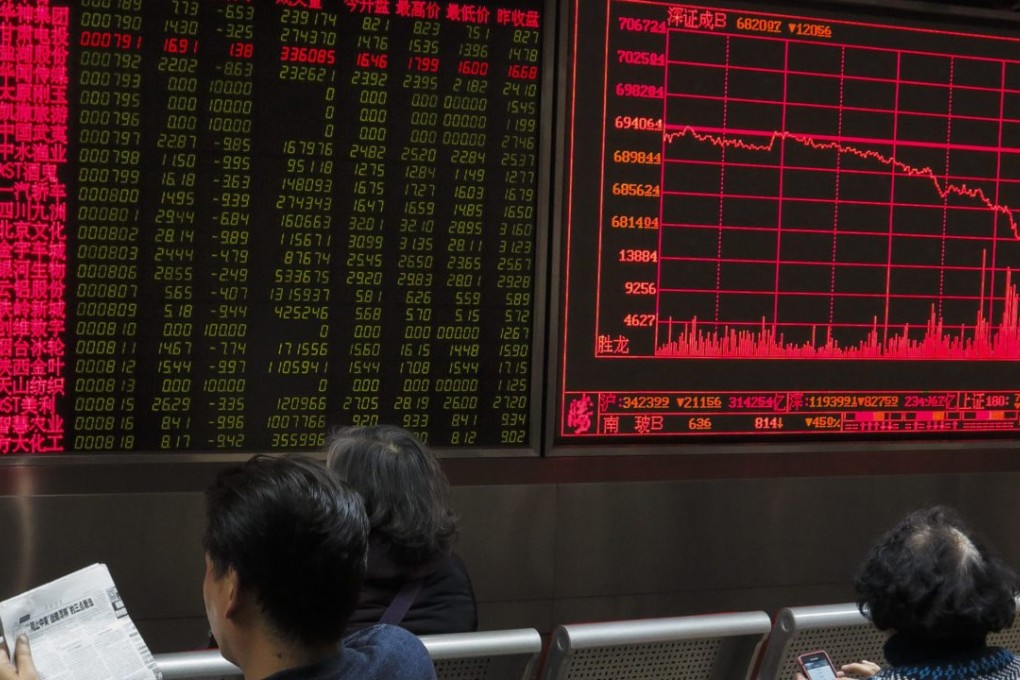Update | Yuan weakens to lowest close in more than four years as stock markets also fall
Thin turnover in Hong Kong put down to investor caution over upcoming US Federal Reserve interest rate decision

The yuan weakened on Thursday to close at a more than four-year low in what appears to be a concerted effort by mainland China’s central bank to weaken what many analysts argue is an overvalued currency ahead of next week’s anticipated US rate increase.
Meanwhile, Hong Kong and mainland stock markets fell in limp trading.
Reports of a small explosion on Wednesday night outside the Legislative Council building had no impact on local trading sentiment said Kenny Tang Sing-hing, chief executive of Jun Yang Securities. The session’s thin turnover, at HK$69.5 billion, was instead put down to investor caution over the upcoming US Federal Reserve decision.
The Hang Seng Index fell 0.45 per cent to 21,704.61 and the H-share index dropped 1.13 per cent to 9,450.49 in the sixth straight day of losses. The Shanghai Composite Index slipped 0.49 per cent to 3,455.50 and the Shenzhen Composite Index lost 0.11 per cent to 2,211.86.
The fundamentals argue for a weak renminbi
The yuan fell again, brushing against intraday four-year lows reached in August when the People’s Bank of China suddenly priced the daily midpoint lower against the US dollar. Unlike August, when the sudden change in direction unhinged investors, and sent markets and currencies tumbling, the recent pattern of devaluation was anticipated by traders.